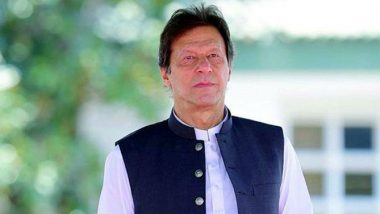Islamabad, November 22: The Pakistan Peoples' Party (PPP) on Saturday criticised Imran Khan's government over its plan to sack thousands of employees of the Pakistan International Airlines (PIA), Steel Mills and Railways and termed the decision illegal and unconstitutional.
"It is unfortunate that unelected lackeys, who have served every government, are taking anti-labour decisions," said PPP leader Raza Rabbani in a statement on Saturday, reported Dawn. Imran Khan Chides Pakistan's Top Health Advisor for Not Taking Supreme Court Hearing on COVID-19 Seriously.
Rabbani further stated that Clause (2) Article 154 of the 1973 Constitution provides that the Council of Common Interests (CCI) shall formulate and regulate policies in relation to matters in Part Il, Federal Legislative List, and shall exercise supervision and control over related institutions.
"Thus such far-reaching measures as a retrenchment of workers, privatisation and structural changes cannot be given effect till they are discussed and approved by the CCI," he remarked.
He further stated that the attempt to make the 1973 Constitution under the shadow of the 1962 Constitution is resulting in the breakdown of systems of governance. According to Dawn, PPP Parliamentary Leader in the Senate Sherry Rehman also condemned the plan of sacking more employees.
On Friday, Adviser to the Prime Minister on Institutional Reforms Dr Ishrat Husain has announced 'unbundling' of several state-owned enterprises, including Pakistan Railways, PIA and Pakistan Steel Mills, and involving the private sector to run these entities.
Acknowledging mismanagement and corruption in the Federal Board of Revenue (FBR), the adviser said the best way to eradicate all such misdoings was to minimise human interaction, reported Dawn.
Last month it was reported that PIA had suffered a loss of Rs 250 billion since the suspension of flight operations to and from the European Union and the United Kingdom. ARY News has quoted PIA's spokesperson as saying that the airlines will face losses of Rs 54 billion if the suspension continues.













 Quickly
Quickly


